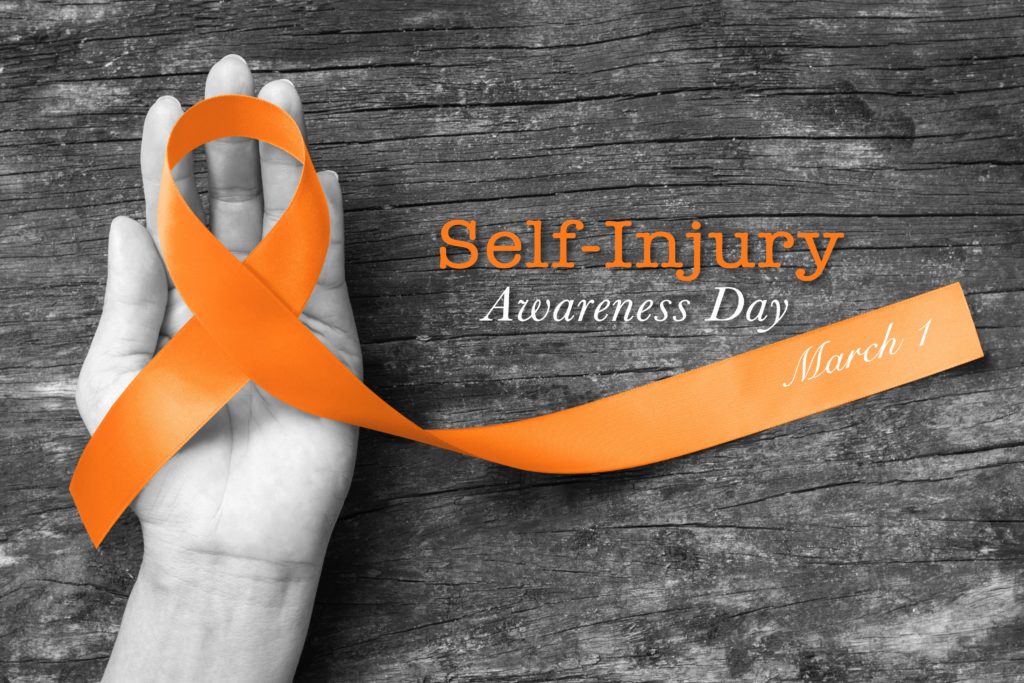
Every year, on March 1st, communities around the globe come together to learn more about Self-Harm Awareness Day. This day serves as a reminder to raise awareness about self-harm, dispel myths surrounding it, and offer support to those who may be struggling. Self-harm, often a deeply personal and misunderstood issue, affects individuals of all ages, genders, and backgrounds. By shedding light on this topic, we can encourage understanding, empathy, and ultimately, provide avenues for healing and support.
What is Self-Harm?
Self-harm, also known as self-injury, is the act of deliberately causing harm to oneself, typically as a way to cope with emotional pain, distress, or overwhelming feelings. Contrary to common misconceptions, self-harm is not a suicide attempt, but rather a harmful coping mechanism.
The Importance of Awareness
Self-harm often carries a stigma that can prevent people from seeking help or support. Understanding the complexities of self-harm is crucial in providing effective support and intervention. By raising awareness, we can break down barriers, reduce stigma, and foster environments where people feel safe to discuss their struggles openly.
Recognizing Signs of Self-Harm
Identifying signs of self-harm can be challenging, as people may go to great lengths to conceal their behavior. However, some common signs to watch for include:
- Unexplained cuts, bruises, or scars, particularly in patterns or clusters.
- Wearing long sleeves or pants even in warm weather to cover injuries.
- Avoidance of activities that may reveal their body, such as swimming or changing clothes in front of others.
- Increased isolation or withdrawal from social interactions.
- Expressions of low self-esteem, depression, or anxiety.
How to Help
If you suspect that someone you know may be engaging in self-harm, it’s essential to approach the situation with care and compassion. Here are some tips to offer support:
- Express Concern: Approach the people in a private and non-judgmental manner. Express your concern for their well-being and let them know you’re there to listen and support them.
- Listen Without Judgment: Allow people to share their feelings and experiences without fear of criticism. Avoid offering quick solutions or minimizing their emotions.
- Encourage Curiosity and Exploration: Encourage people to view their self-harm behavior not as inherently bad, but rather as a message that may be communicating something important about their emotional state and unmet needs. Encourage them to be curious about the underlying reasons behind their actions and to explore what purpose these behaviors serve at the moment. By asking questions such as, “What is this trying to tell me?” and “What does it do for me?” People can gain insight into their emotions and develop healthier coping strategies.
- Offer Alternative Coping Strategies: Encourage people to explore various coping strategies that resonate with their unique experiences and needs. While some may find solace in mindfulness, physical activities, or creative outlets like art or writing, others may not respond well to mindfulness practices due to feelings of inner emptiness or discomfort. It’s important to recognize that what works for one person may not work for another. By fostering an environment of open exploration, people can discover coping mechanisms that best suit their circumstances and emotional needs.
- Stay Supportive: Recovery from self-harm is a journey that takes time and patience. Continue to offer your support and encouragement, even if progress is slow or setbacks occur.
- Encourage Professional Help: Suggest seeking support from a mental health professional, such as a therapist or counselor, who can provide specialized care and assistance.
Seeking Support
If you’re grappling with self-harm or know someone who is, it’s crucial to seek support. There is a wealth of resources at your disposal, from dedicated hotlines and supportive communities to local support groups. It’s essential to remember that you’re not alone in this journey, and with the appropriate support and resources, healing is possible. The compassionate listeners at By My Side are readily available to lend a helping hand whenever you need it.
Conclusion
Self-Harm Awareness Day serves as a powerful reminder of the importance of understanding, empathy, and support for those affected by self-harm. By raising awareness, dispelling myths, and offering support, we can create communities where people feel empowered to seek help and embark on the journey toward healing. Together, let us strive to foster environments of compassion and acceptance for all.
Author: Yee Ling Cheung